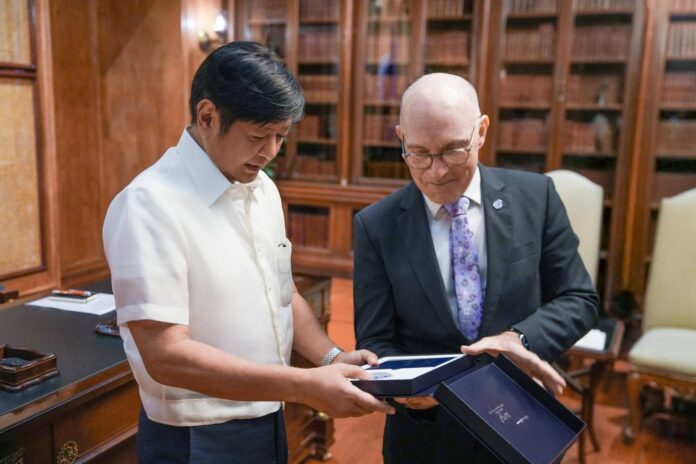
Marcos Vows to Rally Support for Nuclear-Test-Ban Treaty Ratification
President Ferdinand Marcos Jr. has pledged to advocate for the ratification of the Comprehensive Nuclear-Test-Ban Treaty (CTBT) by several nations, reaffirming the Philippines' commitment to global security and nuclear disarmament.
Marcos made the assurance during a meeting with Comprehensive Nuclear-Test-Ban Treaty Organization (CTBTO) Executive Secretary Robert Floyd at Malacañan Palace on March 18. Floyd sought the Philippine leader’s support in persuading the governments of Tonga, Bhutan, and Nepal to ratify the CTBT, which was first adopted by the United Nations General Assembly on September 10, 1996.
“We’ll do our best. We are familiar with the process,” Marcos responded, emphasizing the country’s diplomatic efforts in advancing global peace initiatives.
The Push for Treaty Ratification
The CTBT strictly prohibits any form of nuclear weapons testing and imposes sanctions on non-compliant nations. Since its inception, 187 countries have signed the treaty, with 178 successfully completing the ratification process. However, for the treaty to formally take effect, it must be ratified by 44 specific nations, nine of which—including China, North Korea, Egypt, India, Iran, Israel, Pakistan, Russia, and the United States—have yet to do so.
Floyd highlighted the challenges some nations face in completing the ratification process. He noted that while Tonga is the last remaining South Pacific country to sign and ratify the treaty, Nepal has struggled to push the treaty through its parliamentary process due to frequent leadership changes.
The Philippines’ Role in Global Peace Efforts
Malacañang underscored the Philippines’ recognition of the CTBT’s crucial role in fostering international cooperation and addressing security concerns. The country has been actively supporting non-proliferation efforts and has contributed significantly to global peace initiatives through scientific research and data gathering.
Floyd commended the Philippines for its role in providing high-quality monitoring data to the CTBTO, which enhances global security by ensuring compliance with the treaty.
“Your scientists and experts here are doing an outstanding job, consistently providing high-quality data that contributes to global peace and security,” Floyd said. “We share this data with 187 member states, ensuring that no one can cheat the system.”
Strengthening Global Monitoring Systems
Floyd reiterated the importance of upholding the global norm against nuclear testing, particularly in times of geopolitical uncertainty. He highlighted the International Monitoring System (IMS), which consists of 300 stations worldwide that monitor seismic activity, atmospheric changes, and potential radioactive releases.
The CTBTO remains steadfast in its mission to ensure that nuclear tests are detected, reinforcing global security and disarmament efforts. Floyd is currently in Manila to participate in the 16th ASEAN Regional Forum Inter-Sessional Meeting on Non-Proliferation and Disarmament, further strengthening regional collaboration on these critical issues.
With President Marcos’ commitment to rallying international support for the CTBT, the Philippines continues to assert itself as a strong advocate for global security and nuclear non-proliferation.
